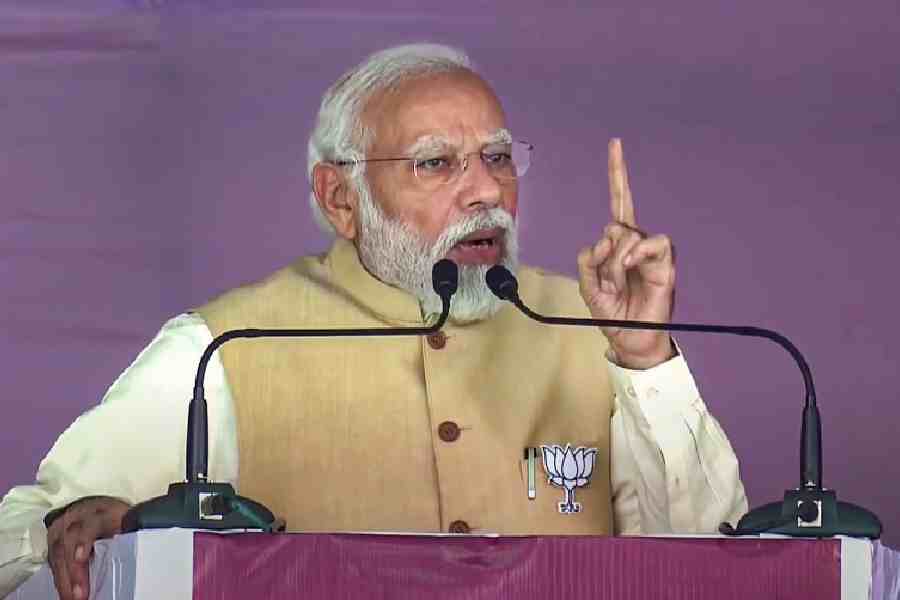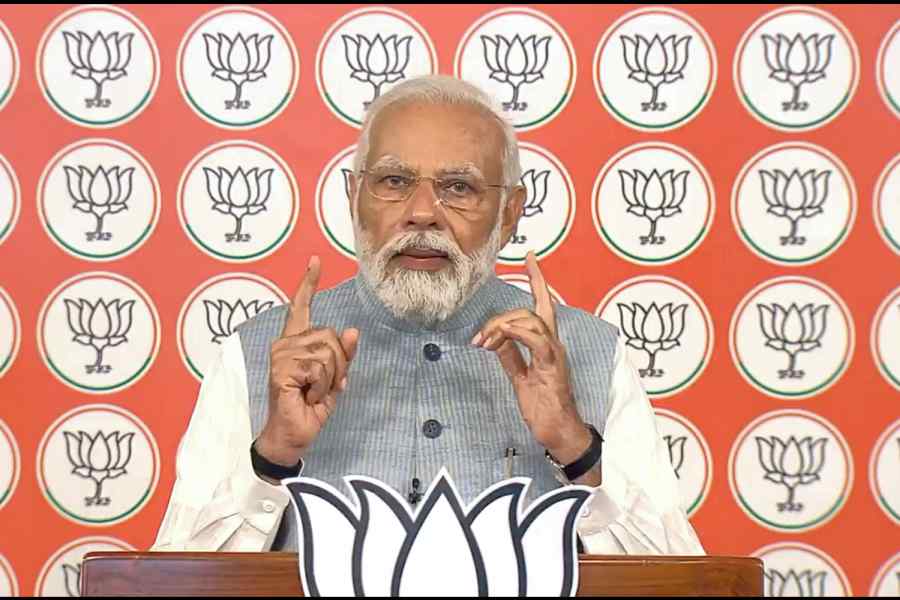Thirty-six nursing students were barred for a week from stepping out of their hostel after classes in the evening because they had failed to show up for an official gathering to listen to Prime Minister Narendra Modi’s 100th Mann Ki Baat radio broadcast on April 30.
The National Institute of Nursing Education, part of the central government-run Postgraduate Institute of Medical Education and Research (PGIMER), Chandigarh, issued the punishment order on May 3.
The institute had earlier declared that attending the programme was “compulsory” for first-year and third-year students. The hostel warden had warned the students that their “outing would be cancelled” if they defied the instruction.
But eight first-year students and 28 third-year students did not turn up.
Saryu D. Madra, consultant (media) at the PGIMER, played the punishment down.
“It’s a regular kind of thing,” Madra told The Telegraph, without elaborating if this meant that such punishments were routine at the institute.
Asked who had taken the decision to punish the students, Madra said: “It’s the principal’s prerogative.”
She did not take any further questions.
Principal Sukhpal Kaur did not wish to comment. “Speak to the PRO and the director, you’ll get the correct information,” she said.
The PGIMER director, Dr Vivek Lal, asked this newspaper to contact the deputy director (administration), Kumar Gaurav Dhawan. Dhawan did not respond to calls to his mobile number.
On Thursday evening, the PGIMER issued a clarification “regarding banning the outing of nursing students after classes in evening due to non-attending the ‘Mann Kee (sic) Baat’ programme”.
“Since some of the students did not share any reason for not attending the session and abstained from the event arranged for them in a lecture theatre, the college authorities took action against them,” it said.
“Though it was little over-reaction on the part of the college authorities and the concerned have already been conveyed the displeasure of PGIMER administration.”
The clarification asked that the matter “not be given any other connotation or blown out of proportion”.
Rajesh Jha and Abha Dev Habib, former members of Delhi University’s executive council, described the nursing college’s action as an assault on the students’ fundamental rights. They added that students cannot be forced to attend such programmes.
“Forced confinement is a violation of fundamental rights like the right to life,” Jha said.
He said that absence from the event cannot be considered an instance of indiscipline.
“Even the regular classes by professors are not mandatory for students to attend. In higher educational institutions, the maximum possible freedom should be given to the students to explore themselves,” Jha said.
Habib said that as a representative of the people, it’s the Prime Minister’s responsibility to listen to students and others.
“Farmers are agitating for a law (guaranteeing) minimum support prices for their crops. Workers are demanding the withdrawal of corporate-friendly labour laws,” she said.
“Students and teachers are protesting against the National Education Policy which promotes the privatisation of education. The wrestlers are on the road demanding action against perpetrators of sexual misconduct. The Prime Minister must listen to them.”
Habib said the diktat to students to compulsorily attend the Mann Ki Baat programme indicates that the government expects people to behave like mindless herds.
“Listening to the Prime Minister is not the students’ job. The government wants to create citizens without autonomy. It must be resisted,” Habib said.
She said that public-funded institutions had grown a tendency to go out of their way to please the government.
IIM Rohtak had last month released a survey report suggesting Maan Ki Baat had reached 100 crore listeners.
The PGIMER clarification said the instruction to attend the event was issued “as a part of their regular curricular activities wherein talks, guest lectures and discussions are arranged regularly by best speakers/ experts/ professionals to impart them value education.
“Rather, in an earlier episode, the Hon’ble Prime Minister had interacted with an organ donor family, a case of transplantation from PGIMER, to promote the noble cause of organ donation, which was hugely morale boosting and invigorated more interest in the episode.”












